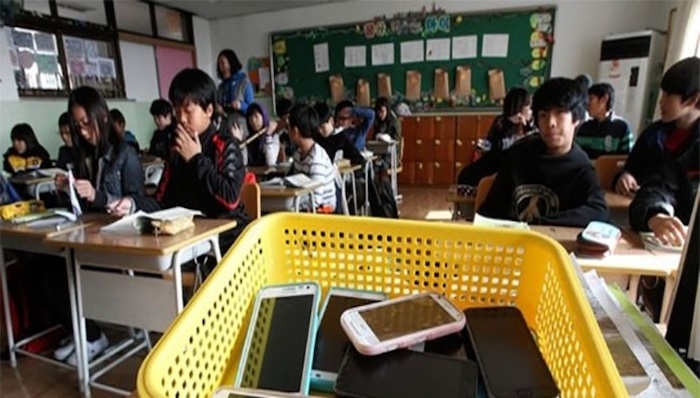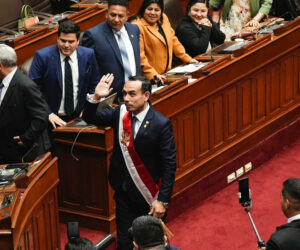South Korea has passed a landmark bill banning the use of mobile phones and smart devices during class hours, becoming the latest country to restrict children’s screen time amid growing concerns about smartphone addiction.
The legislation, which takes effect in March 2026, was passed on Wednesday with 115 votes in favour out of 163 lawmakers present. It is the result of a bipartisan effort to tackle what experts say is a growing health and education crisis.
Lawmakers, parents and teachers argue that smartphone use is eroding students’ academic performance, social skills, and emotional well-being. “Children these days just can’t seem to put their smartphones down,” said Choi Eun-young, a mother of a 14-year-old in Seoul. “Even when they’re chatting with friends, they quickly go back to their phones, and naturally this interferes with learning.”
According to a 2024 government survey, nearly a quarter of South Korea’s 51 million people are considered heavily dependent on their phones. Among those aged 10 to 19, the figure soars to 43%, with more than a third of teens admitting they struggle to control their time on social media.
While many schools already restrict phone use, South Korea becomes one of the few countries to make such a ban legally binding. France and Finland have imposed similar limits in primary schools, while Italy, the Netherlands, and China have enacted broader restrictions across all schools.
The new law prohibits device use during lessons but gives teachers the authority to extend restrictions across school premises. It also mandates schools to educate students on healthy digital habits. Exemptions exist for students with disabilities, those using devices for education, or during emergencies.
The bill’s sponsor, opposition MP Cho Jung-hun, said he was motivated by international examples and scientific evidence, “There is significant proof that smartphone addiction has extremely harmful effects on students’ brain development and emotional growth.”
Teachers are divided. The conservative Korean Federation of Teachers’ Association supported the bill, citing classroom disruptions and even instances of students verbally or physically lashing out when phones were confiscated. Nearly 70% of teachers surveyed reported problems linked to phones.
But the Korean Teachers and Educational Workers’ Union withheld endorsement, arguing the law may infringe students’ rights. Some members say the deeper issue lies in South Korea’s competitive education system.
“Students have no place to meet friends outside of cram schools except through KakaoTalk or Instagram,” said Cho Young-sun, a high school teacher.
Students themselves are also sceptical. Seo Min-joon, 18, argued that the ban is a surface solution, “Banning phones during class hours doesn’t achieve much, because students would still be on their phones while commuting or lying in bed at night. There has been no real education about healthy use, just confiscation.”
For many, the problem goes beyond screens.
South Korea’s gruelling college entrance exam, known as Suneung, dominates young people’s lives. A 13-year-old student told the stated he hardly had time to use his phone, given late-night tutoring and homework. “Rather than simply taking phones away, the first step should be teaching students what they can do without them,” he said.
Erizia Rubyjeana
Follow us on:








